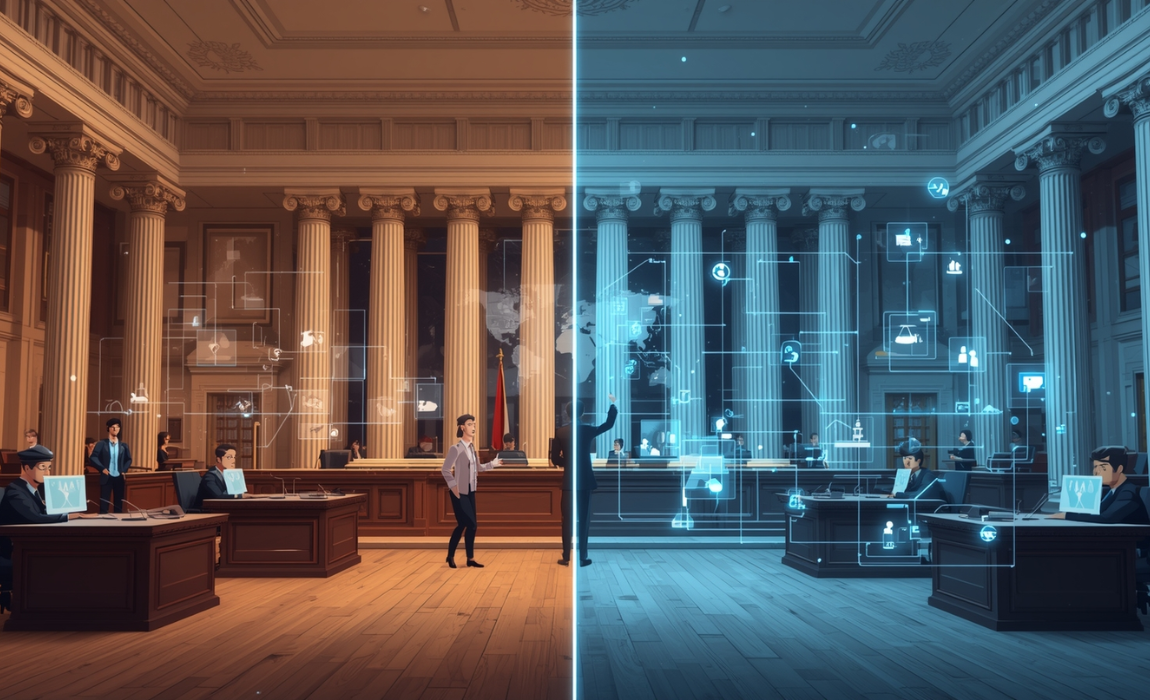
"The Future of Justice: Emerging Trends in Law"
Justice has always been the backbone of society, but the way it is delivered is changing faster than ever. The courts, lawyers, and legal institutions that once relied solely on tradition are now navigating a world reshaped by technology, social change, and global challenges. The future of justice is not just about new laws—it is about making justice faster, fairer, and accessible to everyone.
At the core of this change is technology. Virtual hearings and online filings are increasingly commonplace; courtrooms are no longer confined to four walls. Courts worldwide demonstrated during the COVID-19 epidemic that justice could be served even in situations where physical access was not possible. Digital case management systems, AI-assisted legal research, and online dispute resolution platforms are making legal processes more efficient and reducing the long-standing delays that frustrate litigants.
AI can help predict case outcomes, review contracts, and streamline research, allowing human lawyers and judges to focus on critical thinking and ethical judgment.
At the same time, access to justice is becoming more inclusive. Legal aid initiatives, pro bono services, and online legal platforms are breaking down barriers for marginalized communities. Mobile apps, chatbots, and simple online guides are helping people understand their rights and navigate legal processes without expensive lawyers. Simplifying legal language and reducing procedural complexities are also empowering citizens, making the law more approachable and less intimidating.
Alternative dispute resolution methods are also on the rise. Traditional litigation can be slow and emotionally draining, but mediation, arbitration, and restorative justice programs offer quicker, less adversarial solutions. These approaches focus on dialogue, compromise, and community involvement rather than punishment alone, making justice more humane and practical.
The law is also evolving to meet new challenges. Cybercrime, environmental violations, and data privacy concerns are just a few examples of issues that did not exist a few decades ago. Legislators and courts are constantly updating frameworks to address these emerging problems, ensuring the legal system stays relevant. Laws on data protection, cybersecurity, and environmental regulation are not just technical—they are essential for safeguarding citizens in a modern society.
People are starting to trust the legal system more and more when it comes to transparency as well as accountability. Numerous courts are allowing the public to view previously closed procedures, posting rulings online, and live-streaming sessions. Citizens now actively participate in the judicial system and demand that it be accountable, transparent, and equitable Yet, while technology and innovation are reshaping justice, human values remain irreplaceable. Empathy, ethical reasoning, and a commitment to fairness cannot be automated. The challenge for the future is to balance speed, efficiency, and technological tools with these timeless principles. A system that is fast but unfair, or efficient but insensitive, fails the very purpose of justice.
Finally, it should be noted that the future of justice is both thrilling and difficult. The fundamental ideas of justice and equality are still in place, but change is being fueled by technology, diversity, alternative conflict resolution, and transparency. A contemporary judicial system is one that welcomes innovation while maintaining a human perspective. In order to safeguard rights, settle conflicts, and assist the people for whom the law was intended, the law must change as society does. This fine balance between principle and progress is where justice's future rests.
